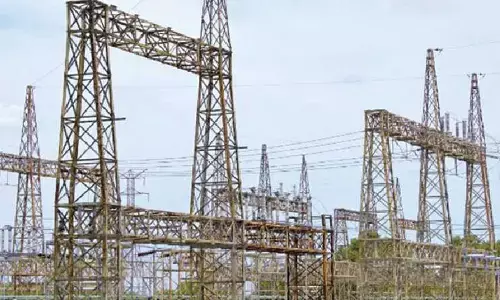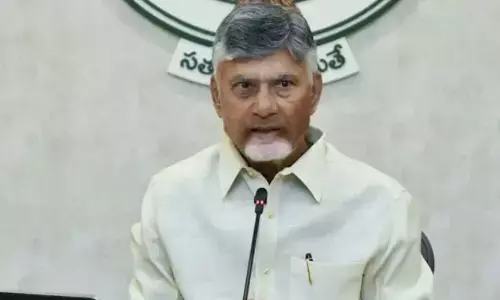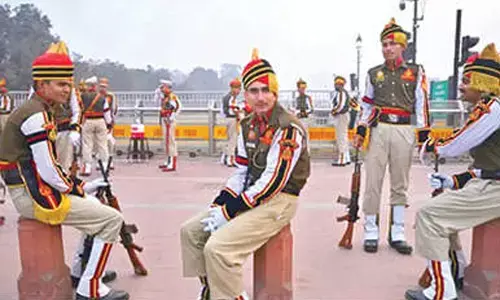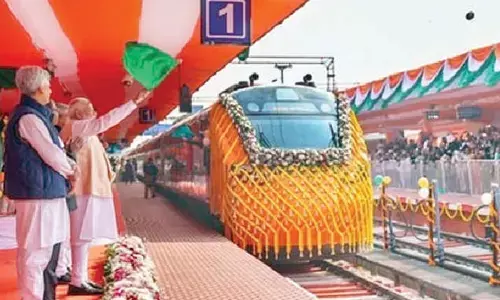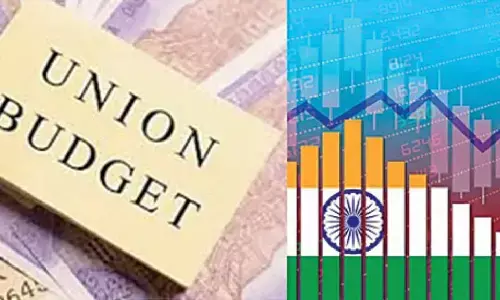Is name changing only for renaming sake?
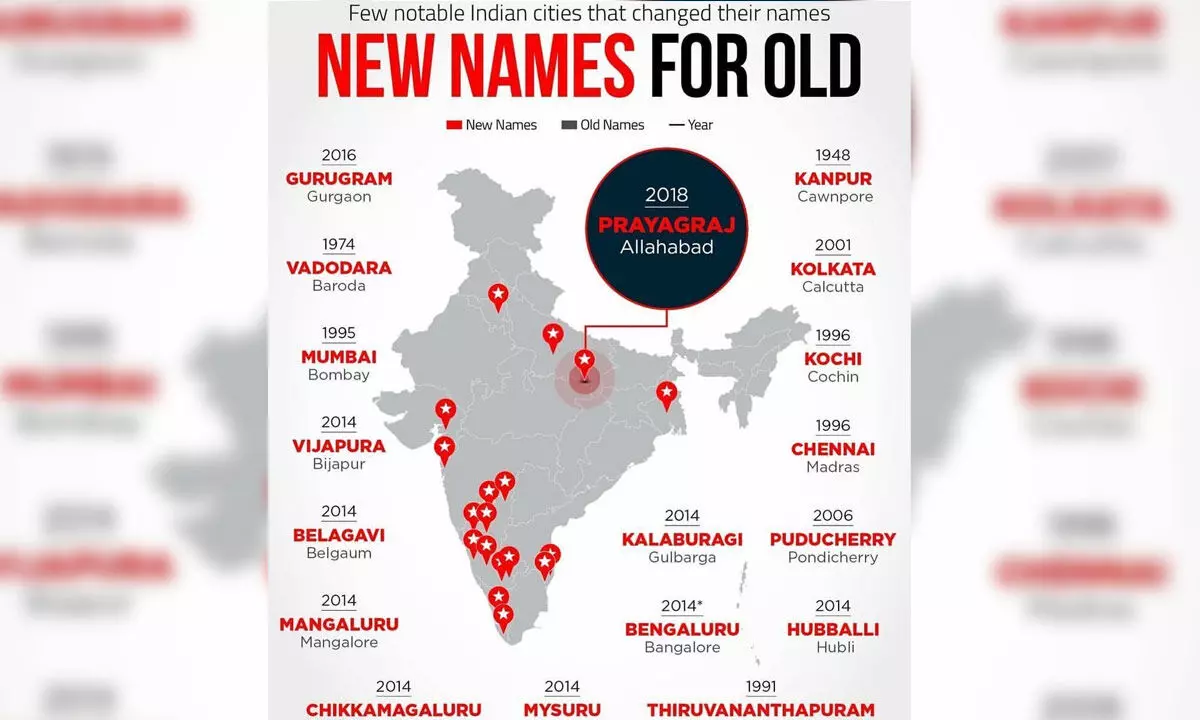
As of August 25, 2023, about 59 cities and 9 states have been renamed
Ever since the BJP came to power at the Centre and in some States, name changing has become a norm. Be it the name of a building, block, city or State, the government just wants to engrave its name on every asset of the country, maybe to make people remember the rule of the BJP. But what change does this activity render? At a time when opinion is divided over the name changing of cities and States, the big question that comes to the fore is what benefit such a move likely brings.
Other parties, too, are following in the BJP’s footsteps. On August 9, the Left Democratic Front (LDF) government in Kerala adopted a resolution in the Assembly seeking change of name of the State to Keralam, citing its Malayalam origin. However, the move awaits approval from the Union Home Ministry.
In June 2022, BJP-Shiv Sena government in Maharashtra changed the names of Aurangabad as Chhatrapati Sambhajinagar, Osmanabad as Dharashiv and Ahmednagar as Ahalyadevi Nagar. Earlier, in 1996, the Shiv Sena government changed the name of Bombay, believing that this name was given by erstwhile British rulers and the city should be renamed after its legendary goddess Mumbadevi. As a result, the island city of Bombay and its suburbs were renamed as Mumbai.
Apparently to take forward the legacy of our great civilization, the names of major cities such as Calcutta, Madras and Bangalore were changed to Kolkata, Chennai and Bengaluru respectively. It can be said that from time to time, the names were changed to erase the British or Mughal rulers’ glory attached to them and to bring them in tune with local sentiments.
In 2018, the Yogi Adityanath government in Uttar Pradesh changed Allahabad city’s name to Prayagraj and Faizabad’s name to Ayodhya, citing historical origin. Agra Municipal Corporation even tried to rename Taj Mahal as Tejo Mahalaya, with some concocted origin attached to it. In BJP-ruled Madhya Pradesh, Hoshangabad was renamed as Narmadapuram and Islamnagar as Jagdishpur. Then, there is the long-standing proposal of West Bengal government to rename the State as Bangla. It seems like name changing has become a political trend to invoke native sentiments among the citizens.
When we trace the past instances, we only see a name change without any solid benefits flowing out of it. Name changing may have found mention in textbooks and fulfilled the sentimental aspirations of a section of people, but it did not generate jobs and social benefits for the aspirants as Telangana did for Telanganites and Andhra did for Andhraites.
The agitation by political parties for bifurcation or trifurcation of States is justifiable but it appears that lobbying for renaming of cities and States is just a poll-bound activity to appease specific vote banks. When we closely analyse this communalization of names by political parties, we reach the conclusion that the erstwhile British rulers’ practice of ‘Divide and Rule’ is being carried out till this day and perpetually for the same reasons.
The new generation will only be left confused between Shivaji Maharaj, Nizam ul Mulk or Henry Havelok, a British general. Their bookish version will contradict with what they listen to as ancestral stories from their grandparents. So, it is just going to puzzle the new brains.
The government, while proposing a name change, should explain the benefits from it. Except the extra paperwork involved in changing the names on files, the activity does not yield any results. The process of name changing of a State, which is covered under Article 3 of the Indian Constitution, is a long procedure which requires approval from the Union government’s ministry of home affairs (MHA). This means that a Constitutional amendment becomes necessary to effect the change in the name of a State.
The proposal has to first come from the State government. The MHA then takes over and gives its consent after it receives No Objection Certificates (NOCs) from several agencies such as the Ministry of Railways, Intelligence Bureau, Department of Posts, Survey of India and Registrar General of India etc.
When a name change is implemented, except a tedious activity of giving new names to institutions, streets in the respective area and writing changed narratives in journals and books, it will not render any benefits to the people. Apparently, name changing has become part of political campaign and foremost agenda of political parties for historical manipulation to attract favorable response from the communities in the elections.
The government should take time to think of ways of improving the governance rather than undertaking this silly activity of manipulating the minds of the coming generations. Even after 76 years of Independence, when the country is still reeling under unemployment and unending poverty, high crime rate and slow economic growth, it is a big disappointment that governments are focussing on trivial things and not dealing with issues needing their urgent attention.
Till day, as of August 25, 2023, about 59 cities and 9 states have been renamed. If the name of Kerala is changed again, then it will be renamed for the second time. Initially, its name was Travancore-Cochin. It is apparent that the BJP’s name changing mantra is only to wipe out Muslim origins from the names and it has no cultural, linguistic or historical foundation.
Furthermore, the Uttar Pradesh government is one step ahead as CM Yogi Adityanath has removed Mughal History chapters from Class 12 textbooks. He is on a mission to revamp history. Politicians doing all these gimmicks should know that history cannot be recreated or rewritten or erased. Its essence is to be taught in the way it is and not change it.












